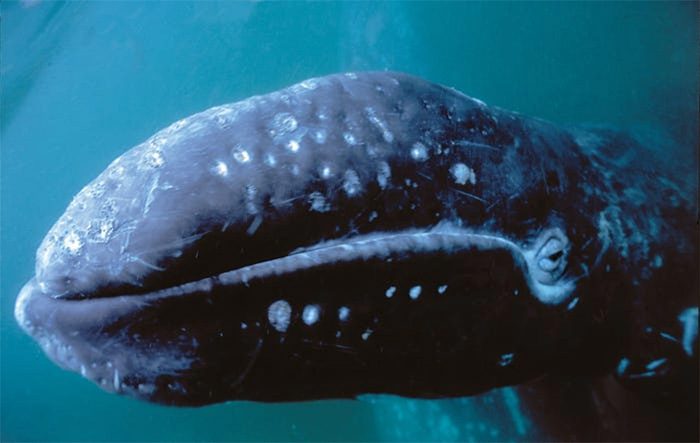For the first time in 200 years, a gray whale has been spotted in the Atlantic Ocean. Scientists warn this could be a bad omen for Earth.
Researchers have confirmed that a gray whale was seen off the coast of New England, USA.
This mammal species has been absent from the Atlantic Ocean for the past two centuries. Therefore, its reappearance is a discovery that has attracted significant interest, but scientists are also concerned that it reflects the impacts of climate change on marine life.

Gray whales have been extinct in the Atlantic since the 18th century, likely due to overhunting by humans. (Photo: Gerald Soury/Getty Images).
Gray whales disappeared from the Atlantic in the 18th century, but in the past 15 years, there have been five sightings of this species in the Mediterranean Sea.
The gray whale was spotted on March 1, 2024, approximately 48 kilometers off the New England coast. Researchers estimate it weighs around 27,200 kg and is typically found in the northern Pacific Ocean. It is likely the same individual that was sighted in the waters off Florida, USA, late last year.
When they first spotted the animal in New England, researchers were initially skeptical, but after circling the area for 45 minutes to observe it more closely, they managed to photograph it and confirmed it was indeed a gray whale.
Bad news for our planet
Scientists express great concern upon seeing this animal because its appearance is likely a result of global warming.
They note that the Northwest Passage connecting the Atlantic and Pacific Oceans through the Arctic in Canada has lost significant ice in recent summers. This means gray whales may be able to swim through this passage during the summer, which would normally be impassable for them. Hence, the presence of this gray whale in New England is a sign of changing marine life in response to climate change.
Gray whales are distinguished from other whale species by their lack of dorsal fin and mottled skin, making them quite different from the humpback and orca whales commonly found in New England. Their vocalizations are also unique. While humpback whales are known for their haunting “songs”, gray whales produce low, grunting sounds.
Gray whales were nearly hunted to extinction during the peak of the whaling industry. Today, they have rebounded enough for the International Union for Conservation of Nature (IUCN) to classify them as a species of “least concern,” although the organization still categorizes the population of whales in Asian waters as threatened.




















































